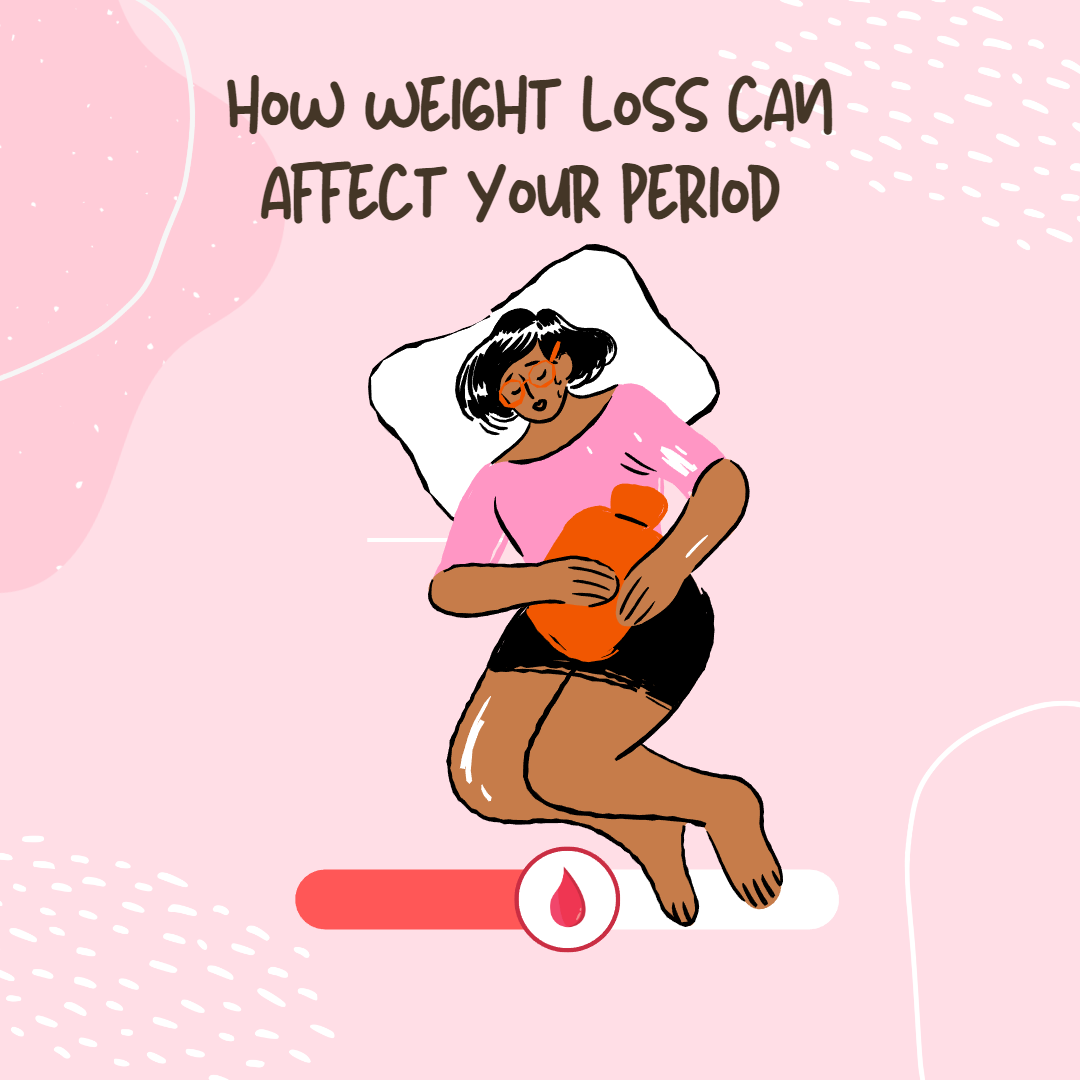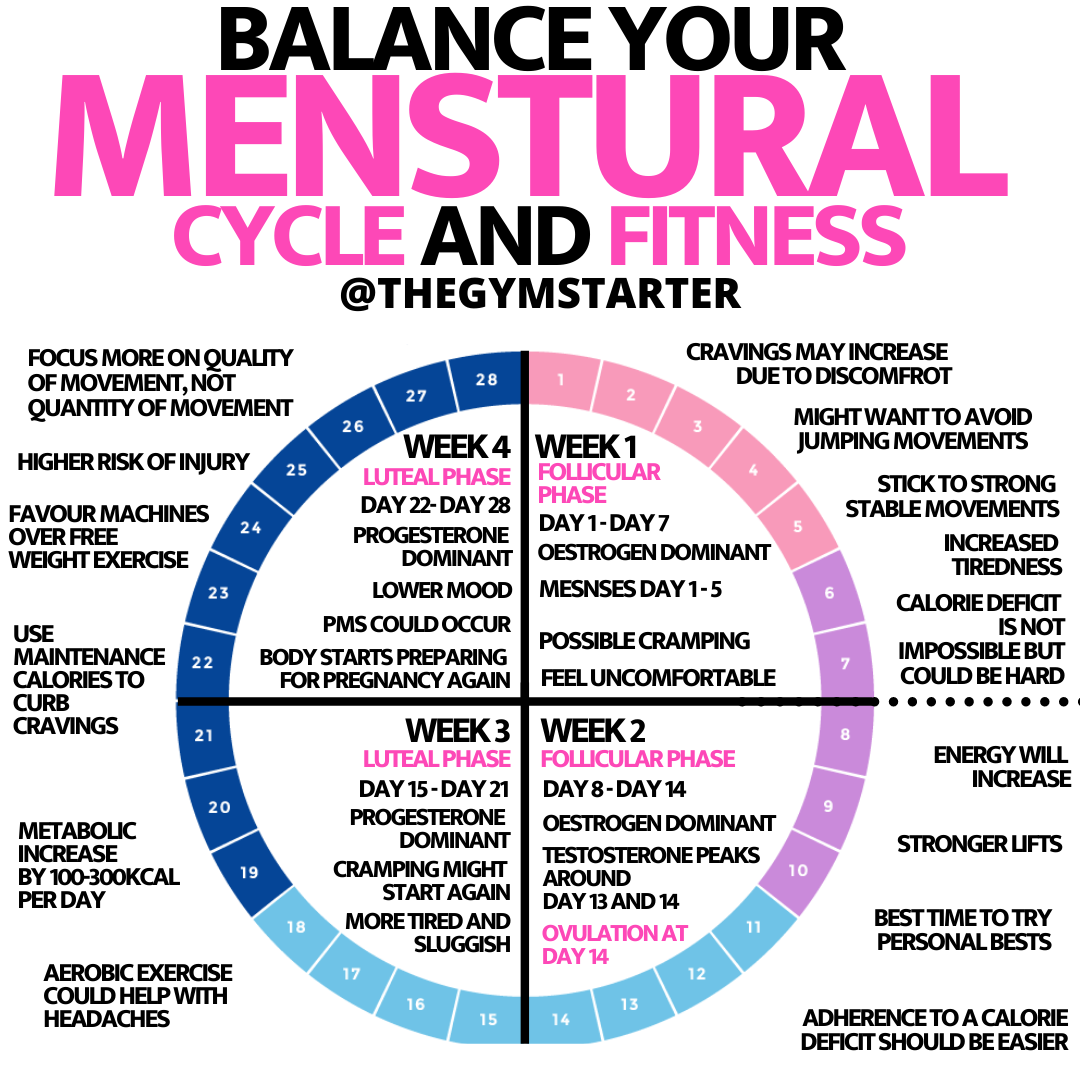Weight Loss Can Affect Your Period
Weight loss can disrupt your period due to changes in hormone levels and stress on the body. It’s essential to understand how weight loss can impact your menstrual cycle and overall health.
When you lose a significant amount of weight, your body may experience hormonal imbalances, leading to irregular periods or even amenorrhea. This disruption can affect your fertility and overall well-being. Understanding the relationship between weight loss and menstrual changes is crucial for women striving to achieve a healthy weight while maintaining regular menstrual cycles.
We will explore the connection between weight loss and menstrual irregularities, providing insights into how to manage these changes and prioritize your reproductive health.
The Link Between Weight Loss And Menstrual Cycles
Weight loss can have a significant impact on menstrual cycles. The body weight plays a crucial role in influencing hormonal balance, particularly in the production of estrogen by fat cells. A decrease in body fat due to weight loss can lead to disruptions in the menstrual cycle, causing irregularities and changes in the duration and intensity of periods. The link between weight loss and menstrual cycles is essential for women to understand, as it can affect their overall reproductive health.

Credit: medium.com
Signs Your Period Is Affected By Weight Loss
Weight loss can have an impact on your menstrual cycle, leading to changes in menstrual flow and irregular cycles. One of the signs that your period may be affected by weight loss is changes in menstrual flow. When you lose a significant amount of weight, it can disrupt the delicate hormonal balance in your body, which can result in lighter or heavier periods than usual. Additionally, weight loss can also cause irregular cycles or missed periods. This is because the body may perceive a sudden drop in weight as a sign of stress or malnutrition, leading to a disruption in the regularity of your menstrual cycle. It’s important to note that these changes are not uncommon and usually resolve on their own as your body adjusts to the new weight. However, if you experience prolonged or severe changes in your menstrual cycle, it’s always a good idea to consult with a healthcare professional to rule out any underlying health concerns.
Why Rapid Weight Loss Can Lead To Menstrual Irregularities
Rapid weight loss can disrupt the menstrual cycle due to the impact of stress on the body. The body may perceive weight loss as a form of stress, leading to hormonal changes that affect menstruation. Additionally, nutritional deficiencies resulting from extreme dieting can also disrupt hormone production, further impacting the regularity of periods. It’s important to prioritize sustainable and gradual weight loss methods to minimize the risk of menstrual irregularities.
:max_bytes(150000):strip_icc()/feetcoveringscale-fcbe71ec5b37437693a939b31fb1f259.jpg)
Credit: www.verywellhealth.com
The Science Of Amenorrhea In Athletes
Weight loss can lead to menstrual irregularities, known as amenorrhea. This condition is common in athletes due to energy deficiency. The female athlete triad involves disordered eating, amenorrhea, and osteoporosis. Prevention strategies include proper nutrition and monitoring menstrual cycles. Management involves restoring energy balance and seeking medical advice if needed.
Long-term Effects Of Weight Loss On Reproductive Health
Losing weight can have a significant impact on your reproductive health, particularly for women. Fertility implications are one of the most important aspects of weight loss on reproductive health. Being overweight or obese can lead to infertility due to hormonal imbalances that result from excess fat. Losing weight can help regulate hormones and improve fertility.
However, weight loss can also lead to a decrease in estrogen levels, which can increase the risk of osteoporosis, a condition that weakens bones. Low estrogen levels can also result in irregular periods or even the complete absence of periods, which can affect reproductive health. Women who are trying to conceive should monitor their menstrual cycle and consult with a healthcare provider if they experience any changes.
| Risks of osteoporosis linked to low estrogen: |
|---|
| Weakens bones |
| Increases the risk of fractures |
| Can lead to chronic pain and disability |
Managing Weight Loss Without Compromising Menstrual Health
Weight loss can affect your menstrual cycle in various ways, including irregular periods, heavy bleeding, and missed periods. However, you can manage your weight loss journey and menstrual health by setting realistic goals and maintaining a balanced diet.
Setting realistic weight loss goals is crucial to avoid putting your body under unnecessary stress. Aim for a slow and steady weight loss of 1-2 pounds per week. Rapid weight loss can cause hormonal imbalances, leading to irregular periods and other menstrual issues.
Moreover, following a balanced diet is important for maintaining menstrual health. Make sure your diet includes a variety of fruits, vegetables, whole grains, and lean proteins. Avoid processed foods, sugary drinks, and excessive caffeine, as they can disrupt your menstrual cycle.
In conclusion, weight loss can affect your menstrual health, but by setting realistic goals and following a balanced diet, you can manage both effectively.
Exercise: Finding The Right Balance
Regular exercise is crucial for hormonal balance and overall health. Types of beneficial exercise include yoga and strength training. Over-exercising can lead to irregular periods and other health issues.

Credit: www.thegymstarter.com
When To Seek Professional Help
Weight loss can have an impact on your menstrual cycle, and it’s important to pay attention to the signs your body is giving you. If you notice any changes in your period after losing weight, it may be a good idea to seek professional help. A healthcare provider can help you interpret these changes and determine if any further action is needed.
Choosing the right healthcare provider is crucial in this situation. Look for someone who specializes in women’s health or reproductive medicine. They will have the expertise to properly assess your situation and provide appropriate guidance. Don’t hesitate to reach out for help if you’re experiencing irregular periods or any other concerns related to your menstrual cycle after weight loss.
Conclusion
Maintaining a healthy weight is key to regulating your menstrual cycle. Remember, your body’s signals are interconnected. Weight loss can impact your period, so listen to what your body tells you. Prioritize your health and consult a healthcare professional for personalized guidance.
Your well-being matters.